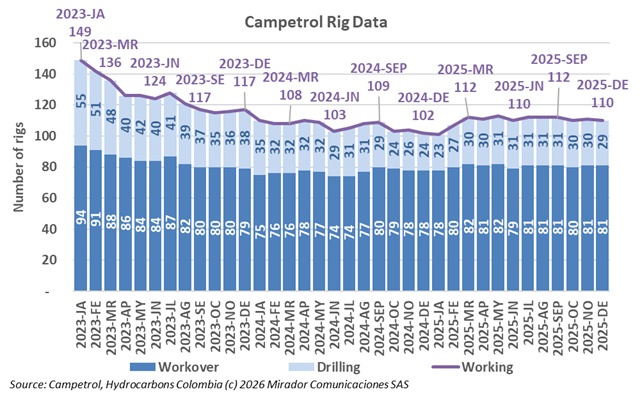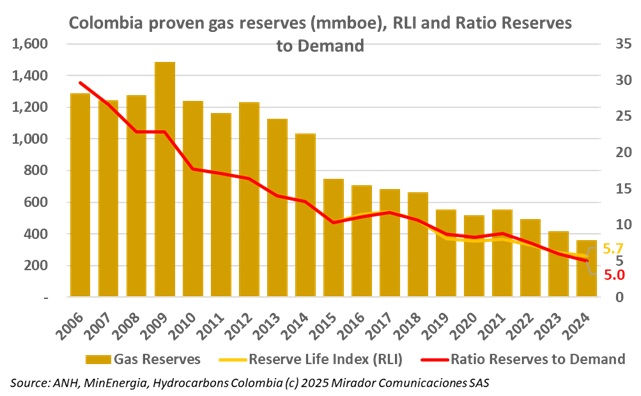Arrow Exploration announced successful completion of the Mateguafa 8 appraisal well at the Tapir Block in Colombia’s Llanos Basin, where the company holds a 50% beneficial interest.

Colombia’s oil and gas drilling activity registered modest growth during 2025, with average drilling rigs reaching 110 units between January and December, representing a 2.8% year-over-year increase according to data from the Colombian Petroleum, Gas and Energy Chamber (Campetrol).
Ecopetrol received the “Gold Standard” recognition for the third consecutive year for its advances in methane emissions management, detailed measurement plan implementation, reporting quality and transparency, and establishment of reduction targets. The recognition is granted by the Oil and Gas Methane Partnership (OGMP 2.0), an initiative led by the United Nations Environment Programme.
The Colombian Association of Geologists and Geophysicists of Energy (ACGGP) presented a comprehensive public policy proposal aimed at strengthening the country’s energy security through scientific evidence, increased exploration, enhanced state technical capacity, and improved territorial engagement models.
Petrobras is advancing multiple natural gas exploration initiatives in Colombia’s Caribbean waters while navigating the complex approval process for its flagship Sirius project, according to Alcindo Moritz, president of Petrobras in Colombia.

Fitch Ratings issued a stark warning for Colombia’s oil and gas sector: the country’s proven reserves now have a useful life of less than seven years, a decline that has accelerated since 2021.
Colombia’s hydrocarbon sector is entering a decisive phase, and without a rapid rebound in exploration, the country risks losing production capacity, fiscal stability and long-term energy security. That was the warning delivered by Frank Pearl, president of the Colombian Oil and Gas Association (ACP), at the VIII Petroleum, Gas and Energy Summit.
Petrobras’ (NYSE: PBR) entrance into Colombia’s offshore energy landscape could mark a turning point for the country’s energy security. Together with Ecopetrol (NYSE: ECP), the Brazilian company is leading the Sirius gas project, a deepwater discovery that could restore Colombia’s self-sufficiency in natural gas for at least a decade.
In a move that could reshape Colombia’s energy future, Ecopetrol (NYSE: ECP) and Petrobras (NYSE: PBR) have announced a joint marketing agreement for the early commercialization of gas from Sirius, one of the country’s most promising offshore discoveries in the Caribbean.
Latin America stands at a crossroads between oil, gas, and clean energy, but Colombia appears to be drifting from the regional consensus that seeks balance between economic survival and decarbonization.